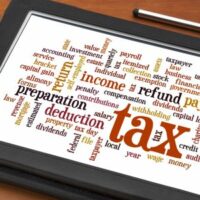Self-Employed Individuals May Qualify For New Sick And Family Leave Tax Credits

Filing taxes can be complicated, especially for self-employed individuals, who may not be aware of what types of credits and deductions they qualify for. This is where an experienced Florida tax return preparation lawyer can make all the difference, so if you have questions about how to claim a tax credit, don’t hesitate to reach out to our legal team today.
COVID-19 Sick and Family Leave Tax Credits
Taxpayers don’t have to work for someone else in order to benefit from certain tax credits and deductions. Many self-employed individuals and business owners, for instance, qualify for the equivalent of the sick and family leave tax credits that were created by the Families First Coronavirus Response Act (FFCRA). This law, passed early in 2020, authorized certain self-employed taxpayers to claim a tax credit if they were unable to work because of COVID-19. Specifically, taxpayers can qualify for an equivalent tax credit if they were unable to work because:
- They were subject to a COVID-19-related federal, state, or local quarantine;
- They had been advised by a doctor to self-quarantine due to concerns about contracting COVID-19;
- They were suffering from symptoms of the virus and were seeking a diagnosis;
- They were caring for someone who was subject to a quarantine order, or had been advised to quarantine; or
- They were caring for a child because child care providers or schools were closed or unavailable.
Self-employed taxpayers who satisfy this test can claim refundable tax credits, which will offset their federal income tax.
Calculating Equivalent Tax Credits
To calculate their sick leave equivalent amount, self-employed taxpayers are directed to take the number of days that they couldn’t work and then multiply that number by $511 or 100 percent of their average daily self-employment income (whichever is less). Those who were unable to work because they were caring for a relative, or were unable to obtain child care services, on the other hand, would calculate the amount of the credit by taking the number of days that they were unable to work and multiplying that number by $200 or 67 percent of their daily wage, whichever is less. It’s important to note, however, that the maximum number of days that a person can take into account when determining his or her sick leave equivalent is ten. The latter calculation is also used when a person is attempting to determine the qualified family leave equivalent amount, although in those cases, self-employed taxpayers can claim the credit for up to 50 days.
Claiming Sick and Family Leave Credits
Fortunately, self-employed individuals can receive both qualified sick and family leave equivalent credits at the same time. These amounts will, however, be reduced by any qualified sick and family leave wages that a person collects.
Call Today for Help with Your Tax Law-Related Questions and Concerns
If you are self-employed, but don’t know which credits you may qualify for, please set up a free, one-on-one consultation with experienced Florida tax return preparation attorney Ronald Cutler, P.A. by calling 386-490-9949 today.



